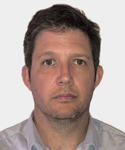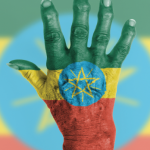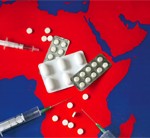Echoing key areas of concern more broadly in rheumatology, the task force aims to increase awareness of unmet needs, prevent morbidity from these illnesses and promote better access to treatment. The task force has collaborated with many charities and patient organizations around the world on many different initiatives related to disease awareness, advocacy, policy and education, as well as different webinar programs and virtual meetings that provide an opportunity to engage healthcare workers who are not specialists.
Like several others at the conference, Dr. Foster pointed out that such an approach is a way to reach a large number of people at low cost, and that innovations and cultural changes in technology use due to COVID-19 may be harnessed to positive effect.
Many of these free online activities rely on another resource that some task force members helped develop: Paediatric Musculoskeletal Matters (PMM), a free e-resource and online learning tool on pediatric musculoskeletal curricula designed to serve countries where specialist care is lacking.
“We are never going to get enough pediatric [musculoskeletal] specialists,” said Dr. Foster. “We have to reach out to the existing workforce and help them help us. These individuals can help raise awareness about suspected diagnoses, help initiate investigations and care.”
Currently the task force is developing a novel advocacy campaign (RUN; Rheumatology Unmet Needs) centered on patient stories. This will focus on the general public but also healthcare professionals and healthcare planners, using industry for sponsorship.
The campaign will help fund SPRINT (Spreading Rheumatology Internationally Together) to help build the workforce capacity. This program will expand on previous work with free remote education targeting non-expert members of the medical team, with a priority of reaching low-resource settings. These campaigns will be released over the next 12–18 months.
The Pediatric Rheumatologic Workforce
Other projects tackled similar concerns of building the overall workforce through education. Chris Scott, MBChb, head of the Division of Paediatric Rheumatology at the University of Cape Town, South Africa, and another co-chair of the Paediatric Global Musculoskeletal Task Force, shared details of a similar project.
Dr. Scott explained that a vicious cycle can occur with lack of access to care. A lack of access leads to missed diagnoses and lack of rheumatology research. This can lead to a false perception of rarity, which leads to further de-prioritization of policies promoting rheumatology education and services, causing further shortages in the workforce and poorer outcomes.




